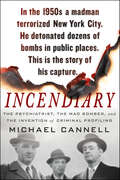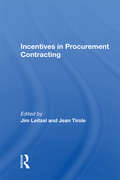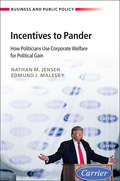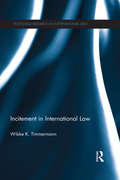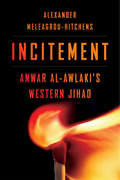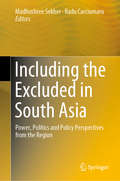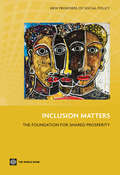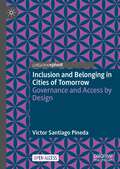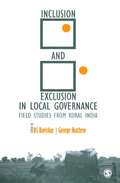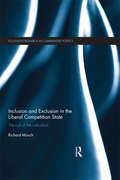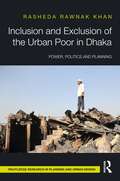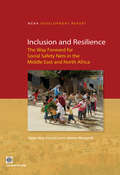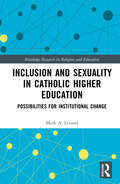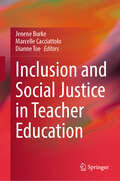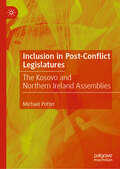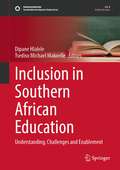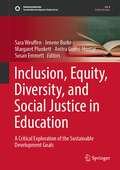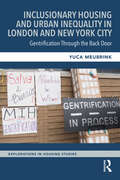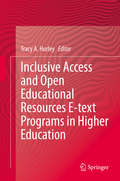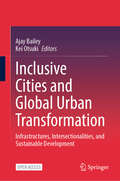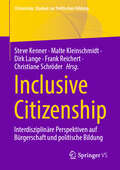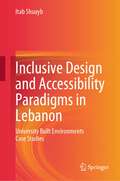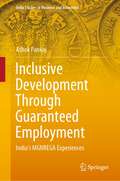- Table View
- List View
Incendiary: The Psychiatrist, the Mad Bomber, and the Invention of Criminal Profiling
by Michael CannellLong before the specter of terrorism haunted the public imagination, a serial bomber stalked the streets of 1950s New York. The race to catch him would give birth to a new science called criminal profiling.Grand Central, Penn Station, Radio City Music Hall—for almost two decades, no place was safe from the man who signed his anonymous letters “FP” and left his lethal devices in phone booths, storage lockers, even tucked into the plush seats of movie theaters. His victims were left cruelly maimed. Tabloids called him “the greatest individual menace New York City ever faced.” In desperation, Police Captain Howard Finney sought the help of a little known psychiatrist, Dr. James Brussel, whose expertise was the criminal mind. Examining crime scene evidence and the strange wording in the bomber’s letters, he compiled a portrait of the suspect down to the cut of his jacket. But how to put a name to the description? Seymour Berkson—a handsome New York socialite, protégé of William Randolph Hearst, and publisher of the tabloid The Journal-American—joined in pursuit of the Mad Bomber. The three men hatched a brilliant scheme to catch him at his own game. Together, they would capture a monster and change the face of American law enforcement.
Incense Rising
by Ph.D. N. J. SchrockA young woman and a fugitive scientist gather allies and dodge assassins while they learn harsh truths about their world, where consumerism has invaded every aspect of their lives, and the political system protects itself by making people and information disappear.Névé is a young woman who rescues things like dogs, sugar beets, and a scientific theory, which is in the possession of a fugitive scientist named Incense Rising. Incense is wanted by the Central Bureau of Intelligence for work she did with her murdered uncle. As Névé and Incense gather allies and dodge assassins, they will learn the harsh truths about their world, where consumerism has invaded every aspect of their lives, and the political system protects itself by making people and information disappear.
Incentives In Procurement Contracting
by Jim LeitzelThis volume presents a nontechnical treatment of issues that arise in procurement contracting, with an emphasis on major weapons systems procurement. Employing the economic theory of agency as their analytical framework, contributors assess the incentives that arise, for both buyers and sellers, in different contractual settings. Procurement contra
Incentives to Pander: How Politicians Use Corporate Welfare for Political Gain (Business and Public Policy)
by Nathan M. Jensen Edmund MaleskyPolicies targeting individual companies for economic development incentives, such as tax holidays and abatements, are generally seen as inefficient, economically costly, and distortionary. Despite this evidence, politicians still choose to use these policies to claim credit for attracting investment. Thus, while fiscal incentives are economically inefficient, they pose an effective pandering strategy for politicians. <P><P>Using original surveys of voters in the United States, Canada and the United Kingdom as well as data on incentive use by politicians in the US, Vietnam and Russia, this book provides compelling evidence for the use of fiscal incentives for political gain and shows how such pandering appears to be associated with growing economic inequality. As national and subnational governments surrender valuable tax revenue to attract businesses in the vain hope of long-term economic growth, they are left with fiscal shortfalls that have been filled through regressive sales taxes, police fines and penalties, and cuts to public education.<P> Provides rigorous empirical analysis, involving cutting-edge methods including: survey and natural experiments, regression discontinuity designs, and matching estimators. These techniques will give sophisticated readers confidence in the argument and policy conclusions; Includes a chapter on comparative incentive programs and an analysis of Vietnam and Russia that broadens the reach of the study beyond western democracies to authoritarian political systems.<P> Vivid description and unique presentation of the analysis will benefit readers familiar with well-known case studies such as Ferguson Electric, Google in Lenoir North Carolina, and the Kansas City border wars.<P>
Incitement in International Law (Routledge Research in International Law)
by Wibke K. TimmermannThis book offers a comprehensive study of incitement in its various forms in international law. It discusses the status of incitement to hatred in human rights law and examines its harms and dangers as well as the impact of a prohibition on freedom of speech. The book additionally presents a detailed definition of punishable incitement. In this context, Wibke K. Timmermann argues that incitement should be recognized as the crime of persecution, where it is utilized within a system of persecutory measures by the State or a similarly powerful organization. The book draws on the Nahimana case before the International Criminal Tribunal for Rwanda, as well as jurisprudence from German and other courts following World War II to provide support for this proposal. The work moreover provides a comprehensive analysis of public incitement to crimes; solicitation or instigation; and the related modes of liability aiding and abetting and commission through another person. Dedicated exclusively and comprehensively to incitement in its various forms, this book will be of essential use and great interest to students and researchers of international criminal law and human rights law, in addition to practitioners within these areas.
Incitement: Anwar al-Awlaki’s Western Jihad
by Alexander Meleagrou-HitchensThe definitive account of the career and legacy of the most influential Western exponent of violent jihad. Anwar al-Awlaki was, according to one of his followers, “the main man who translated jihad into English.” By the time he was killed by an American drone strike in 2011, he had become a spiritual leader for thousands of extremists, especially in the United States and Britain, where he aimed to make violent Islamism “as American as apple pie and as British as afternoon tea.” Alexander Meleagrou-Hitchens draws on extensive research among al-Awlaki’s former colleagues, friends, and followers, including interviews with convicted terrorists, to explain how he established his network and why his message resonated with disaffected Muslims in the West. A native of New Mexico, al-Awlaki rose to prominence in 2001 as the imam of a Virginia mosque attended by three of the 9/11 hijackers. After leaving for Britain in 2002, he began delivering popular lectures and sermons that were increasingly radical and anti-Western. In 2004 he moved to Yemen, where he eventually joined al-Qaeda and oversaw numerous major international terrorist plots. Through live video broadcasts to Western mosques and universities, YouTube, magazines, and other media, he soon became the world’s foremost English-speaking recruiter for violent Islamism. One measure of his success is that he has been linked to about a quarter of Islamists convicted of terrorism-related offenses in the United States since 2007. Despite the extreme nature of these activities, Meleagrou-Hitchens argues that al-Awlaki’s strategy and tactics are best understood through traditional social-movement theory. With clarity and verve, he shows how violent fundamentalists are born.
Including the Excluded in South Asia: Power, Politics and Policy Perspectives from the Region
by Madhushree Sekher Radu CarciumaruThis book analyses and discusses the multiple dimensions of social exclusion/inclusion seen in South Asia. It not only captures how ‘social exclusion’ is intrinsic to deprivation or deprivation in itself, but also the processes of political engagement and social interactions that the socially excluded develop as strategies and networks for their advancement. Consequently, the book goes beyond structures or agency, and examines the question of a more dynamic approach to provide spaces for the ‘socially excluded’ to self-manage exclusion, thereby raising discussions around the contested positions that underlie development discourse on social inequality.While social exclusion linked to identities is studied, the book argues that hierarchies and inequalities based on social identities cut across and affect various groups of excluded. Consequently, these phenomena create or lead to various processes of exclusion. The book illustrates that social exclusion should not be limited to privileging the differences that characterize the exclusionary processes, but should also comprise underpinning strategies of ‘inclusion’, emphasizing the need to focus on imperatives ‘to include’. As a result, the book acknowledges that social exclusion is not limited to analyzing the different identities that face exclusion, but also understanding the systems and processes that create social exclusion, or create opportunities for inclusion of the excluded.The book addresses readership across academic disciplines (including in the growing field of state capacity and governance), and practitioners (administrators and policy-making communities). Conclusively, the book, provides a platform to intensively exchange the multifaceted and critical issue of social exclusion/inclusion, and thus contributes to inclusive sustainable development discourse.
Inclusion Matters
by World BankSocial inclusion is on the agenda of governments, policymakers, and nonstate actors around the world. Underpinning this concern is the realization that despite progress on poverty reduction, some people continue to feel left out. This report aims to unpack the concept of social inclusion and understand better how policies can be designed to further inclusion. First, the report offers a definition of social inclusion as the "process of improving the terms for individuals and groups to take part in society." It unpacks different domains of society that excluded groups and individuals are at particular risk of being left out of -- markets, services, and spaces. Second, the report discusses the most important global mega-trends such as migration, climate chnage, and aging of societies, which will impact challenges and opportunities for inclusion. Finally, it argues that despite these challenges, change towards inclusion is possible and offers examples of inclusionary policies.
Inclusion and Belonging in Cities of Tomorrow: Governance and Access by Design
by Victor Santiago PinedaThis open access book uncovers the historical context and entrenched beliefs that have perpetuated exclusionary urban landscapes and disadvantage for marginalized groups. It offers an in-depth exploration of the intricate interplay of geographical space, recognizing its pivotal role in shaping our cities and exacerbating spatial injustice. The construction industry, a vital agent in forging accessible environments, often falls short in accommodating persons with disabilities and older individuals. This important book underscores the urgent need for integrated approaches woven into the fabric of cities, companies, and the construction industry itself, to ensure universal accessibility. Drawing upon practical strategies and compelling case studies, the book presents actionable frameworks such as the DisCo Policy Framework and the Iceberg of Inequality Model, facilitating the assessment of progress towards achieving radical inclusion. Inviting readers to embark on a journey into the cities of tomorrow, where inclusion and belonging are the norm, it concludes with a simple idea: the future is accessible.
Inclusion and Exclusion in Local Governance: Field Studies from Rural India
by BS BAVISKAR AND GEORGE MATHEWInclusion and Exclusion in Local Governance: Field Studies from Rural India is a product of a rare national-level study conducted in 42 panchayats across 12 states to reveal how democratic decentralization is working in Indian villages. This is done through stories of empowerment as well as discrimination against women, scheduled castes and scheduled tribes (SCs and STs). The contributors have adopted a unique research methodology which may set a trend for future national-level qualitative studies. The field studies offer insights about rural India from a micro-level perspective instead of providing macro-level generalities. This collection will be of considerable interest to students, researchers, academicians and practitioners working in the fields of Local Governance, Political Sociology and Rural Development.
Inclusion and Exclusion in the Liberal Competition State: The Cult of the Individual (Routledge Research in Comparative Politics)
by Richard MünchThis book examines the increasingly international division of labour, which promotes transnational integration. It analyses the change in worker solidarity as it moves from collective national welfare to a transnational inclusion of workers from various links in the production chain. Examining three types of welfare regimes within the USA, Germany, Denmark and Sweden, the author addresses how and why globalization is furthering the change from the welfare state to the competition state. The book considers in particular the change to solidarity taking place because of the internationalization of labour division; a change away from the segmented and differentiated system of nation states with strong internal national solidarity to broader, more inclusive and cross-border labour identity and inclusion. Analysing the deeper moral consequences of a globalised labour society, such as the paradigms of inclusion and justice, this book considers the implications of transnational labour on national welfare politics, and looks at the increasing significance of the transnational and national politics of inclusion in social policy, education, minority rights, immigration and gender equality. Inclusion and Exclusion in the Liberal Competition State will be of interest to scholars and students of political science, sociology and social policy studying welfare state change.
Inclusion and Exclusion of the Urban Poor in Dhaka: Power, Politics, and Planning
by Rasheda Rawnak KhanInclusion and Exclusion of the Urban Poor in Dhaka explores how the inhabitants of poor neighborhoods in Dhaka, Bangladesh, gain inclusion in the city at the face of exclusion. The book considers how the people of poor neighborhoods encounter the exclusionary behavior of city development, and how their inclusionary attempts have influenced the urban design. The book is presented in two parts: first, it explains how people in poor neighborhoods face exclusion because of the imbalance of power and politics. Second, it demonstrates how the existing exclusion of urban poor is affecting their strategies to gain access to urban services through people’s power and politics. Focusing on the transdisciplinary field of urban anthropology, the chapters uncover the urban forces, policies and actions that facilitate urban politics. It also investigates the people who live in poor neighborhoods, who in the face of exclusion, have included themselves in urban development planning and design by employing diverse strategies against those forces in the urban politics, e.g., accepting dominance, bargaining, or having control over their lives. This book will recontextualize an ethnographic inquiry into the exclusion and inclusion of the people within city development design, plans and innovations in applications of anthropological theory and methodology. This book will encourage the reader to understand the politics of state’s development projects and plans, and furthermore instigate the city government, planners and policymakers to focus on the people's political power and agency that enables them to achieve inclusion. It will therefore be of interest to researchers and students of urban planning and development, urban geography, and urban anthropology, as well as planning professionals and policymakers.
Inclusion and Resilience
by Victoria Levin Matteo Morgandi Joana SilvaThe report aims to meet two broad objectives: (a) enhance knowledge about the current state of existing social safety nets (SSNs) and assess their effectiveness in responding to new and emerging challenges to the poor and vulnerable in the region by bringing together new evidence, data, and country-specific analysis; and (b) open up and inform a debate on feasible policy options to make SSNs in the Middle East and North Africa more effective and innovative. The first chapter, 'a framework for SSN reform,' describes and illustrates the reasons for the region's growing need for SSN reform and establishes the framework for renewed SSNs. It identifies key goals for SSNs (promoting social inclusion, livelihood, and resilience) and illustrates how these goals have been achieved in some parts of the region and elsewhere. The second chapter, 'key challenges that call for renewed SSNs,' analyzes the challenges facing the region's poor and vulnerable households, which SSNs could focus on as a priority. Two large groups are at higher-than-average poverty risk: children and those who live in rural or lagging areas. The third chapter, 'the current state of SSNs in the Middle East and North Africa,' analyzes SSN spending and assesses different aspects of the SSN systems' performance. The fourth chapter, 'the political economy of SSN reforms in the Middle East and North Africa: what do citizens want?' presents new evidence on citizens' preferences concerning redistribution and SSN design, using newly collected data. It also discusses how political economy considerations could be taken into account in designing renewed SSNs in the region. The fifth chapter, 'the way forward: how to make safety nets in the Middle East and North Africa more effective and innovative,' proposes an agenda for reform and the path for moving forward, using global experience and the evidence presented in the preceding chapters.
Inclusion and Sexuality in Catholic Higher Education: Possibilities for Institutional Change (Routledge Research in Religion and Education)
by Mark A. LevandDrawing on research conducted at 17 Catholic universities in the United States, making it the largest study of its kind, this volume explores effective practice in improving institutional policy relating to issues of sexuality. The text calls attention to campus cultures of fear, shame, or denial around sexuality and highlights possible points of institutional resistance to changes in policy. Discussing topics such as sexual identity, sexuality education in the curriculum, Title IX, employee termination, and morality clauses, the book shows how staff and faculty are crucial in effecting change across Catholic campuses, providing valuable insight into the “unspoken rules” around sexuality within the shadow culture at Catholic institutions. Moreover, the text illustrates how institutions can maintain fidelity to Church teachings and even embrace notions of human dignity, solidarity, and the common good to achieve sexual inclusivity. A unique study demonstrating how Catholic teaching can help support inclusive change around issues of sexuality and gender in higher education, it ultimately puts forward a practical framework for effecting change and improving student and staff support structures in Catholic institutions. It will thus appeal to researchers and academics working in the fields of Higher Education Management, Gender and Sexuality in Education, Religion, Gender and Sexuality, and the Sociology of Religion.
Inclusion and Sexuality in Catholic Higher Education: Possibilities for Institutional Change (Routledge Research in Religion and Education)
by Mark A. LevandDrawing on research conducted at 17 Catholic universities in the United States, making it the largest study of its kind, this volume explores effective practice in improving institutional policy relating to issues of sexuality.The text calls attention to campus cultures of fear, shame, or denial around sexuality and highlights possible points of institutional resistance to changes in policy. Discussing topics such as sexual identity, sexuality education in the curriculum, Title IX, employee termination, and morality clauses, the book shows how staff and faculty are crucial in effecting change across Catholic campuses, providing valuable insight into the “unspoken rules” around sexuality within the shadow culture at Catholic institutions. Moreover, the text illustrates how institutions can maintain fidelity to Church teachings and even embrace notions of human dignity, solidarity, and the common good to achieve sexual inclusivity.A unique study demonstrating how Catholic teaching can help support inclusive change around issues of sexuality and gender in higher education, it ultimately puts forward a practical framework for effecting change and improving student and staff support structures in Catholic institutions. It will thus appeal to researchers and academics working in the fields of Higher Education Management, Gender and Sexuality in Education, Religion, Gender and Sexuality, and the Sociology of Religion.
Inclusion and Social Justice in Teacher Education
by Marcelle Cacciattolo Jenene Burke Dianne ToeThe scholarly chapters in this edited collection come from authors undertaking social justice research within the teacher education discipline. Authors examine, explore and critique those educational practices and structures that disadvantage minority groups. With a focus on social justice and inclusion, the book concentrates on themes of equity, diversity, learning spaces and effective learning for all, examining the implications for teacher education. An array of critical traditions and methodologies that interrogate educational issues from political, cultural, structural, and social perspectives are explored. This book provides insights on building the capacities of teacher education stakeholders in teaching and learning contexts to understand and respond with equity and justice. Teacher educators, preservice teachers, practicing teachers, and other education stakeholders may find this book to be an excellent resource for developing a critical lens relating to social justice and inclusion in education.
Inclusion in Post-Conflict Legislatures: The Kosovo and Northern Ireland Assemblies
by Michael Potter“An excellent analysis of the complex dynamics of inclusion in post-conflict societies: theoretically grounded, empirically rich, and with a well-informed set of policy-relevant insights and recommendations with implications far beyond the cases of Kosovo and Northern Ireland.”Stefan Wolff, University of Birmingham, UK“Does the promotion of political accommodation between the contending parties in an ethno-nationalist conflict disadvantage other groups in society? This important question is at the heart of Michael Potter's nuanced study of post-settlement parliaments in Kosovo and Northern Ireland, in which he probes their record of representativeness, focusing on gender and ethnicity. His meticulous research, drawing on extensive fieldwork, shows that the domination of the parliaments by parties aligned to the conflict does indeed tend to marginalise other identities. His findings provide plenty of food for thought for practitioners in the field of conflict resolution. In particular, they underline the need for care in the design of institutional arrangements for deeply divided societies, so as to minimise potentially negative consequences that priority for accommodation and reconciliation may have for other issues and for the practice of inclusion.”Adrian Guelke, Queen’s University Belfast, UK“Identity is a central organising principle of politics in the 21st century. In this impressive book Michael Potter shows that a focus on gender and minority ethnic identities in newly-formed post-conflict assemblies provides a unique litmus test of the robustness of democratic politics. He analyses the cases of Kosovo and Northern Ireland with rigour and considerable insight. This book makes a highly original and lasting contribution to theory and practice in post-conflict settings world-wide.”Yvonne Galligan, Dublin Institute of Technology, IrelandThis book examines inclusion in post-conflict legislatures, using Northern Ireland and Kosovo as case studies and gender and minority ethnicity as indicators. The analysis uses an adapted framework developed by Yvonne Galligan and Sara Clavero to measure inclusion across a range of factors associated with deliberative democratic principles. The logic is that political systems designed to accommodate communities in conflict will prioritise certain identities over others. The aim of the book is to investigate how identities not directly associated with a conflict fare in a political system designed to manage identities in conflict. The book looks comparatively at the conflicts in Kosovo and Northern Ireland, then discusses approaches to conflict management, describing how political institutions were designed in those contexts. The themes of women and minority identities in those conflicts are then explored with a view to examining the extent of inclusion in the Northern Ireland and Kosovo Assemblies.
Inclusion in Southern African Education: Understanding, Challenges and Enablement (Sustainable Development Goals Series)
by Tsediso Michael Makoelle Dipane HlaleleThis book reflects on more than two decades of adoption practices of inclusive education policy in Southern Africa. It is aimed at taking stock of the successes, challenges and achievements during this journey of making education inclusive and equitable. It responds to the educational needs of learners at all levels, regardless of their diverse needs, such as disability, gender, socio-economic status, race, ethnicity and language background.This book furthers the understanding and conceptualization of the notion of inclusion in education, and explores the challenges experienced during the operationalization and implementation of the process. It extends debates spawned by international and national policy mandates that sought to transcend exclusionary educational practices in order to realize inclusive societies and, by implication, inclusive classrooms. It offers a comprehensive conceptual framework for inclusive education in the Southern African context while drawing parallels from the regional and international experience. This book can be used as a reference or critical reading for scholars and researchers in the field of inclusive education. It will empower practitioners, administrators, teachers and school leaders, curriculum developers and planners, as well as policy makers with knowledge about theory and practice regarding inclusive education in the Southern African schooling system.
Inclusion, Equity, Diversity, and Social Justice in Education: A Critical Exploration of the Sustainable Development Goals (Sustainable Development Goals Series)
by Margaret Plunkett Jenene Burke Sara Weuffen Anitra Goriss-Hunter Susan EmmettThis book presents an edited collection of critical discourse situated in the fields of diversity and inclusion broadly, and more specifically, within the discipline of education. Each chapter articulates the importance of educational diversity in achieving the United Nations Sustainable Development Goal 4. The edited collection presents a grounding narrative of equitable learning opportunities and experiences via interpretivist theoretical frameworks and student-centered methodologies. The combination of these approaches, combined within the strong and scholarly-informed social justice lens, reminds us, that the onus of education is to acknowledge, recognise, respect, and engage with the diverse student cohorts, learning needs, and multiple knowledges and cultures that exist in educational contexts. This edited collection creates a holistic discourse around the experiences, interrogations, and innovations occurring within education communities to foreground deeper and more holistic understanding of the intersectionality of diversity and inclusion existing within the contemporary educational settings.
Inclusionary Housing and Urban Inequality in London and New York City: Gentrification Through the Back Door (ISSN)
by Yuca MeubrinkMunicipalities around the world have increasingly used inclusionary housing programs to address their housing shortages. This book problematizes those programs in London and New York City by offering an empirical, research-based perspective on the socio-spatial dimensions of inclusionary housing approaches in both cities. The aim of those programs is to produce affordable housing and foster greater socio-economic inclusion by mandating or incentivizing private developers to include affordable housing units within their market-rate residential developments.The starting point of this book is the so-called “poor door” practice in London and New York City, which results in mixed-income developments with separate entrances for “affordable housing” and wealthier market-rate residents. Focusing on this “poor door” practice allowed for a critical look at the housing program behind it. By exploring the relationship between inclusionary housing, new-build gentrification, and austerity urbanism, this book highlights the complexity of the planning process and the ambivalences and interdependencies of the actors involved. Thereby, it provides evidence that the provision of affordable housing or social mixing through this program has only limited success and, above all, that it promotes – in a sense through the “back door” – the very gentrification and displacement mechanisms it is supposed to counteract.This book will be of interest to researchers and students of housing studies, planning, and urban sociology, as well as planners and policymakers who are interested in the consequences of their own housing programs.
Inclusive Access and Open Educational Resources E-text Programs in Higher Education
by Tracy A. HurleyThis volume takes a comprehensive and broad look at e-text programs across a wide spectrum of programs, institutions, and policies in three parts. The first part showcases several policy papers to contextualize the discussion and highlight the reasons for IAE programs’ structure and the obstacles they face for implementation. The second part is an in-depth exploration of various case studies that provide a detailed description of IAE programs, including information about program elements, program structure, program size, and insights into how programs are operationalized, and their shortcomings and benefits to students and stakeholders. The final part is a selection of research papers that offer evidence-based support for the adoption of IAE programs in terms of student success, access, engagement, costs, and a variety of other student and institutional outcomes. There are approximately 300 institutions of higher education that currently have some form of Inclusive Access or Open Educational Resources E-text (IAE) program in the United States, but there is little scholarship that engages on the topic of assessing these programs’ effect on student success. The results of the research studies included in this volume will inform faculty, administrators, and policy-makers who seek to support the development, adoption, and implementation of IAE programs based on their potential positive effects on student success and other outcomes.
Inclusive Cities and Global Urban Transformation: Infrastructures, Intersectionalities, and Sustainable Development
by Ajay Bailey Kei OtsukiThis open access book addresses the problem of global urban development that excludes various groups of people from the benefits of urban growth and sustainable development. Using the intersectionality and agency of urban dwellers and citizens, it outlines possibilities of responsive urban governance that builds on principles of the inclusive city. The book's first section presents various cases of digital, smart, logistical, and green infrastructure that drive a city's growth and sustainable development while excluding various citizens from these benefits. The second and third sections focus on the intersectionality and agency of urban citizens vulnerable to marginalization in different urban contexts—such as the elderly, people with various physical and mental challenges, women, and children. The last section presents the cases of potential forms of responsive governance and possibilities for future inclusive city planning and development. This book appeals to students of urban and development studies and planning and related disciplines, such as human and cultural geography, applied anthropology, sociology, sustainability sciences, architecture, and design. It is also helpful for activists and practitioners as illustrative cases presented in the book show various experiences and possibilities for making a city inclusive.
Inclusive Citizenship: Interdisziplinäre Perspektiven auf Bürgerschaft und politische Bildung (Citizenship. Studien zur Politischen Bildung)
by Dirk Lange Malte Kleinschmidt Frank Reichert Steve Kenner Christiane SchröderInclusive Citizenship ist ein Konzept, das in diesem Band theoretisch und empirisch in den Blick genommen wird. Die Autor*innen betrachten Citizenship und Inklusion als soziale Praktiken aus verschiedenen Perspektiven und in verschiedenen gesellschaftlichen Feldern wie Gender und Migration, Lernen und Bildung, Digitalisierung, Medizin und Kulturerbe. Anhand von vielen empirischen Beispielen und theoretischen Impulsen wird so das Konzept geschärft, mit dem die inkludierenden und exkludierenden Aspekte von Citizenship ebenso in den Blick kommen wie die Dimensionen Status und Performativität.
Inclusive Design and Accessibility Paradigms in Lebanon: University Built Environments Case Studies
by Itab ShuaybThis book describes the disability rights movement that started in the USA and its influence on the disability rights movement in Lebanon, which has led to the endorsement of the Lebanese Disability Act 220/2000. The book introduces the reader to the Lebanese Disability Act 220/ 2000, its definition of disability, and its relation to the medical and social models of disabilities and then articulate the Act articles. Then, it defines the inclusive design paradigm that acknowledges the needs of all people at each stage of their life cycle and presents the difference between inclusive design and accessibility and disability notions. Moreover, the book reviews the different international accessible design standards (American and French) that are adopted in Lebanon with the absence of a nationalized Lebanese design standard and its effect on eliminating barriers and enhancing accessibility at university buildings. Besides, the book presents students' experiences and their satisfaction with the university built environments. 6 university buildings case studies at the American University of Beirut are assessed and analysed to check whether they adopt the inclusive design approach and then propose inclusive design solutions for both heritage and modern university buildings. What makes the book unique is its combination of empirical and theoretical application of inclusive design. The last section, reflects the author’s inclusive design teaching pedagogy. In this section, the author shares samples of students’ class design project and provides recommendations and guidelines for teaching inclusive design so it becomes mainstream.
Inclusive Development Through Guaranteed Employment: India’s MGNREGA Experiences (India Studies in Business and Economics)
by Ashok PankajThis book examines the inclusive development experiences and impacts of the Mahatma Gandhi National Rural Employment Guarantee Scheme (MGNREGS). It discusses the theoretical assumptions underlying the inclusive development of Employment Guarantee Scheme (EGS), and draws conclusions based on robust data and real-world experiences with the MGNREGS – which has attracted global attention as India’s most ambitious, rights-based development initiative and most expansive work-based social security measure, the world’s largest public works programme, and people-centric approach to development. The book argues that the Scheme holds vast potential, and, in fact, has made significant contribution to the promotion of livelihoods of the poorest of the poor, but that the weak institutions of local-self-governance, entrusted for implementation of the Scheme, are incapable of exploiting them to the full. It ends with a concrete policy suggestion: the inclusive development experiences gathered with the EGS and presented here could offer a source of policy change in many developing Afro-Asian countries whose situations are similar to India’s, provided the local conditions in the respective country are taken into consideration when designing the EGS. Its significance as a social security measure has increased in post-COVID loss of jobs and livelihoods of the poor.
